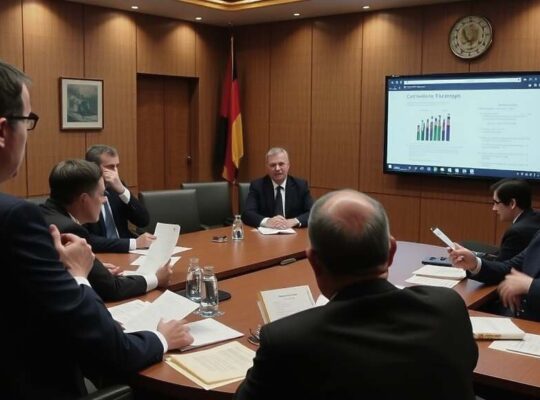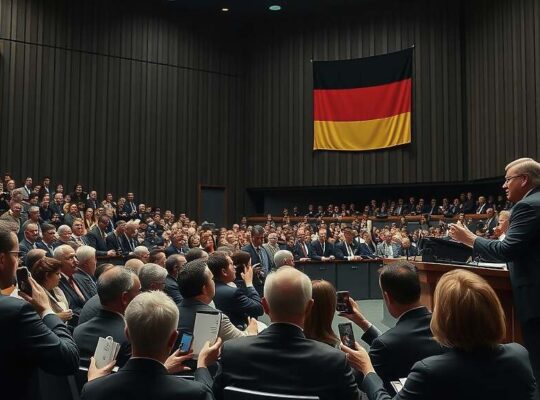The German Interior Minister, Alexander Dobrindt of the CSU party, is advocating for the integration of crisis preparedness and potential wartime scenarios into the national school curriculum, a move drawing both praise and criticism as geopolitical tensions escalate. Dobrindt, in an interview with “Handelsblatt”, proposed dedicating a double-period annually for older students to explore various threat scenarios and appropriate response strategies. He framed children as crucial conduits of information, emphasizing that their acquired knowledge could be disseminated within their families.
This initiative, while presented as a measure to alleviate public anxiety through proactive preparedness, has sparked debate regarding the potential for inducing undue alarm and the appropriateness of introducing such sensitive topics into a school setting. Critics argue that focusing on crisis scenarios might exacerbate existing anxieties and even contribute to a culture of fear, particularly amongst younger students. Concerns have also been raised about the potential for politicization of the curriculum, with questions circling around who defines “threat scenarios” and what perspectives will be represented.
Alongside the proposed curriculum changes, Dobrindt announced the development of a new civil protection pact, aiming to shift the focus from reactive response to preventative measures. The pact outlines plans for enhanced warning systems, expansion of designated shelters – including public spaces like underground garages and residential basements – and ensuring the supply of essential goods in emergency situations.
Furthermore, Dobrindt subtly endorsed the creation of household emergency kits, urging citizens not to be labeled as “preppers” simply for maintaining a modest stockpile of necessities like food, flashlights, batteries and hand-crank radios. He positioned such preparation as responsible foresight rather than a sign of panic.
The announcement comes amidst a broader European context marked by increased geopolitical instability and renewed discussions about national security, prompting renewed questioning about the government’s responsibilities in reassuring the populace while avoiding triggering widespread panic. The success of Dobrindt’s proposed measures hinges on careful implementation and transparent communication to ensure they foster resilience rather than apprehension within German society.












